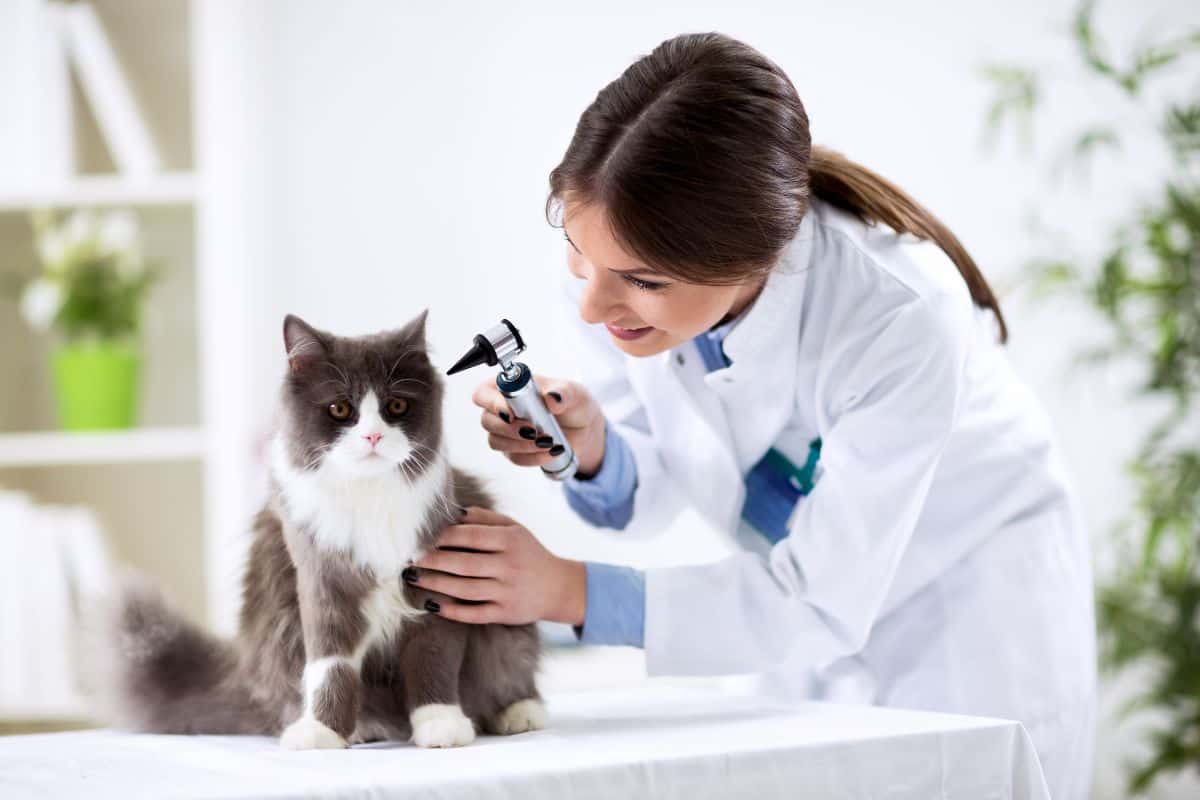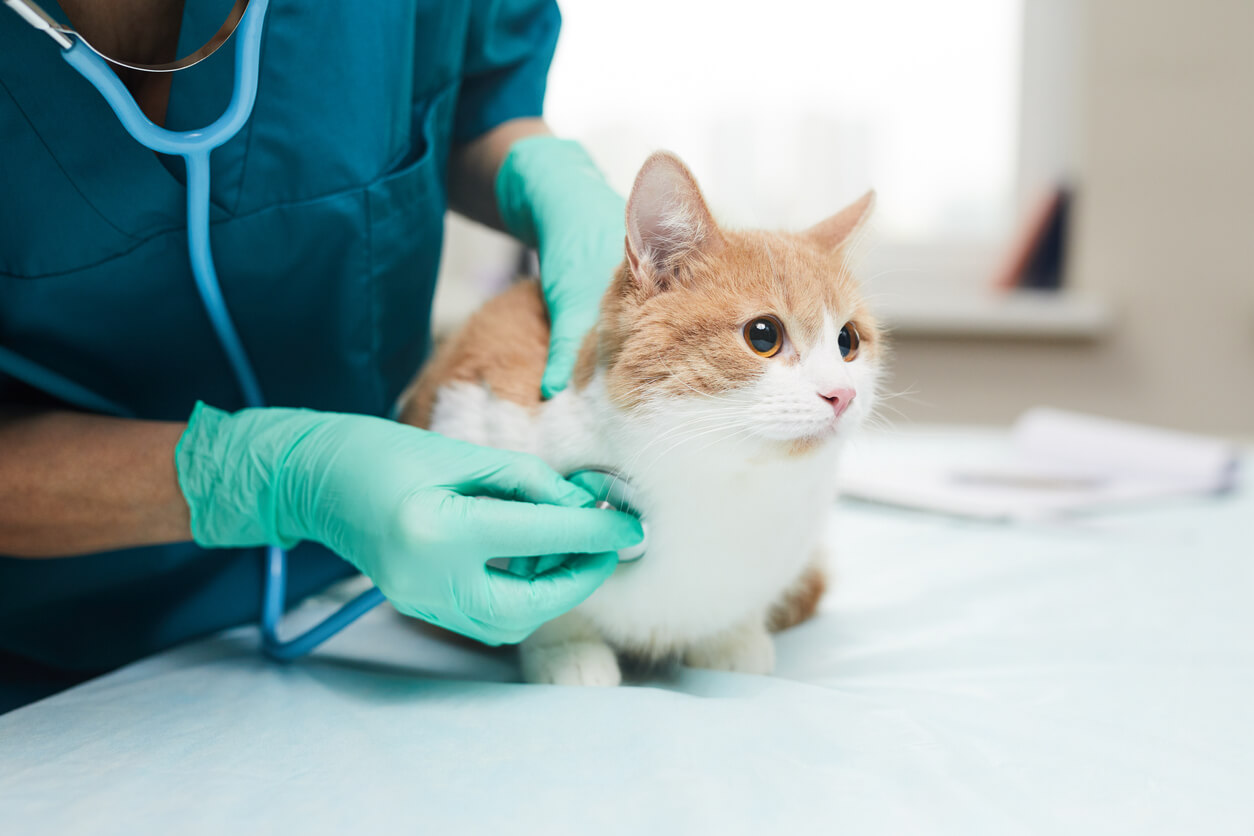The Value of Regular Pet Vaccinations for Maintaining Your Furry Buddy Healthy And Balanced
The Value of Regular Pet Vaccinations for Maintaining Your Furry Buddy Healthy And Balanced
Blog Article
Vaccination Standards From Your Trusted Veterinarian
Vaccination guidelines offered by your trusted vet play a crucial role in safeguarding your pet's health and health. Core vaccinations are basic for all animals, while non-core vaccinations can be customized to specific lifestyles and ecological exposures. Recognizing the nuances of inoculation timetables, which start as early as 6 to 8 weeks, is vital for optimal defense. Furthermore, attending to typical mistaken beliefs surrounding vaccinations can better improve animal proprietors' confidence in these preventive actions. As we check out these crucial facets, it ends up being increasingly clear why routine consultations with your veterinarian are essential for informed decision-making.

Significance of Vaccinations
Vaccinations play a pivotal role in protecting animals against a variety of preventable diseases. By stimulating the body immune system to acknowledge and fight certain microorganisms, vaccines considerably minimize the incidence of infectious conditions that can influence an animal's health and wellness and durability. Not only do inoculations safeguard private animals, yet they likewise contribute to herd immunity, thereby reducing the total frequency of conditions in the family pet populace.
Prompt inoculations aid to alleviate the spread of diseases such as rabies, parvovirus, and distemper, which can have severe consequences for both pet dogs and humans. Vaccinations are commonly a demand for boarding centers, brushing services, and canine parks, making them necessary for those that wish to mingle their animals.

Core Vaccinations for Family Pets
While the specific inoculation needs of pets can vary based on individual variables, core vaccinations are globally recommended to shield against the most typical and major diseases (Emergency Vet). Core vaccines are those regarded essential for all family pets, no matter their lifestyle or geographical location, as they guard against very transmittable and potentially deadly health problems
For pets, the core injections consist of those for canine distemper, parvovirus, adenovirus (hepatitis), and rabies. Canine distemper is a viral illness that affects the respiratory system, intestinal, and worried systems. Parvovirus is known for triggering extreme gastrointestinal ailment, particularly in young puppies. Adenovirus can cause liver illness, while rabies is a zoonotic condition that postures a risk to both humans and family pets.
In felines, core vaccinations encompass feline panleukopenia, feline calicivirus, feline herpesvirus (rhinotracheitis), and rabies. Feline panleukopenia is a highly infectious viral condition that influences the body immune system and intestinal tracts. Calicivirus and herpesvirus are significant factors to upper breathing infections in felines, while rabies continues to be a crucial worry for public health.
Consult with your veterinarian to guarantee your pet dogs obtain their core vaccinations on time.
Non-Core Vaccines Explained
Non-core vaccines are customized to resolve particular risks connected with an animal's exposure, setting, and way of living to particular illness. Unlike core vaccines, which are universally advised for all pet dogs, non-core vaccinations are taken into consideration based on specific conditions. These vaccinations are especially important for pet dogs that may experience distinct pathogens as a result of their geographical place, travel practices, or tasks.
Examples of non-core vaccinations consist of those for Bordetella bronchiseptica, which is linked to kennel coughing, and Lyme disease, triggered by ticks. Pets that regularly engage with other animals, such as those in boarding facilities, pet parks, or grooming atmospheres, might benefit from Bordetella vaccination. If you live in an area where Lyme illness is widespread, vaccinating versus this disease can be a sensible selection for outdoor-loving canines.
Various other non-core vaccinations may consist of those for leptospirosis, canine influenza, and feline leukemia, relying on the particular danger factors present. It is necessary to have an extensive conversation with your veterinarian about your pet dog's way of life and the possible demand for these vaccines, making sure a tailored vaccination technique that ideal protects your fuzzy friend.
Vaccination Arrange Introduction

As animals grow, it is necessary to follow the suggested booster inoculations. Pet Vaccinations. For grown-up pets, core vaccinations are usually offered each to 3 years, depending on the certain vaccination and local policies. Non-core vaccinations may be recommended based upon way of living variables and local disease prevalence, requiring a tailored technique
Regular veterinary examinations are critical for upgrading inoculation routines. Your vet can give advice on one of the most appropriate booster shots for your pet dog, considering age, wellness standing, and ecological dangers. By remaining positive and notified, animal proprietors can guarantee their hairy friends receive reliable and timely vaccinations, thus guarding their wellness and wellness throughout their lives.
Typical Misconceptions About Vaccines
False impressions regarding animal inoculations can bring about complication and unwillingness among pet dog owners concerning the immunization procedure. One common myth is that injections are unneeded for indoor pet dogs. While it holds true that indoor family pets deal with lower threats, they are not totally immune to illness, as microorganisms can be introduced with various methods, including human clothing and various other animals.
Another misconception is that vaccines can create the illness they aim to avoid. In truth, a lot of injections contain suspended or attenuated pathogens, which can not create illness in healthy and balanced animals. Some pet dog proprietors additionally believe that their family pets should not be immunized if they are currently healthy; nonetheless, vaccinations are a positive measure that aids protect against the onset of health problem.
Additionally, numerous animal proprietors fear that injections will certainly lead to long-lasting health and wellness difficulties. The benefits of inoculation-- securing pet dogs from possibly serious conditions-- far outweigh the risks.
Conclusion
In summary, adherence to inoculation standards is critical for making certain the wellness and long life of animals. Core vaccinations supply necessary security against significant conditions, while non-core vaccinations resolve certain dangers based visit this site upon specific way of livings. Establishing an extensive vaccination routine, combined with routine veterinary exams, assists in ideal health and wellness management. Resolving typical misconceptions bordering vaccinations better strengthens the significance of educated decision-making in family pet care. Inevitably, a positive approach to vaccinations is important for linked here keeping family pet well-being.
Not just do inoculations protect private animals, however they additionally add to herd immunity, consequently lowering the overall prevalence of diseases in the family pet populace.
False impressions regarding pet vaccinations can lead to complication and reluctance among pet dog proprietors relating to the booster shot process. While it's true that interior pets face lower threats, they are not totally immune to conditions, as pathogens can be introduced with numerous means, consisting of human apparel and various other family pets.
Some family pet owners also believe that their family pets need to not be immunized if they are already healthy; nevertheless, inoculations are an aggressive measure that assists protect against the start of disease.
The benefits of vaccination-- protecting animals from potentially life-threatening diseases-- much surpass the risks.
Report this page